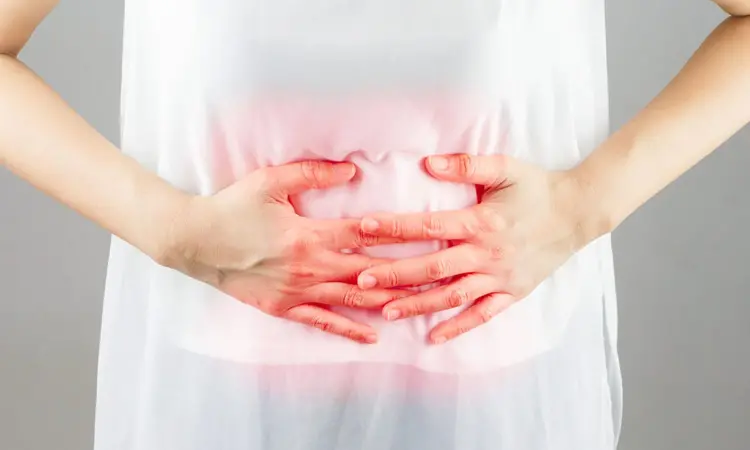- Home
- Medical news & Guidelines
- Anesthesiology
- Cardiology and CTVS
- Critical Care
- Dentistry
- Dermatology
- Diabetes and Endocrinology
- ENT
- Gastroenterology
- Medicine
- Nephrology
- Neurology
- Obstretics-Gynaecology
- Oncology
- Ophthalmology
- Orthopaedics
- Pediatrics-Neonatology
- Psychiatry
- Pulmonology
- Radiology
- Surgery
- Urology
- Laboratory Medicine
- Diet
- Nursing
- Paramedical
- Physiotherapy
- Health news
- Fact Check
- Bone Health Fact Check
- Brain Health Fact Check
- Cancer Related Fact Check
- Child Care Fact Check
- Dental and oral health fact check
- Diabetes and metabolic health fact check
- Diet and Nutrition Fact Check
- Eye and ENT Care Fact Check
- Fitness fact check
- Gut health fact check
- Heart health fact check
- Kidney health fact check
- Medical education fact check
- Men's health fact check
- Respiratory fact check
- Skin and hair care fact check
- Vaccine and Immunization fact check
- Women's health fact check
- AYUSH
- State News
- Andaman and Nicobar Islands
- Andhra Pradesh
- Arunachal Pradesh
- Assam
- Bihar
- Chandigarh
- Chattisgarh
- Dadra and Nagar Haveli
- Daman and Diu
- Delhi
- Goa
- Gujarat
- Haryana
- Himachal Pradesh
- Jammu & Kashmir
- Jharkhand
- Karnataka
- Kerala
- Ladakh
- Lakshadweep
- Madhya Pradesh
- Maharashtra
- Manipur
- Meghalaya
- Mizoram
- Nagaland
- Odisha
- Puducherry
- Punjab
- Rajasthan
- Sikkim
- Tamil Nadu
- Telangana
- Tripura
- Uttar Pradesh
- Uttrakhand
- West Bengal
- Medical Education
- Industry
Vascular endothelial dysfunction in women associated habitual abortion

Turkey: Researchers from Turkey have discovered a new factor in the aetiology of recurrent pregnancy loss and described it in their study published in the Journal of Obstetrics and Gynaecology Research.
The study showed the presence of vascular endothelial dysfunction in women with habitual abortion.
Nurcan Yoruk, Erzurum Regional Training and Research Hospital, Erzurum, Turkey, and colleagues aimed to determine whether a new factor exists in the aetiology of recurrent pregnancy loss. For this purpose, they investigated serum nitric oxide (NO) and malondialdehyde (MDA) levels as indicators of oxidative stress, and endocan levels, a marker of vascular dysfunction, in patients diagnosed with habitual abortion.
The research was performed as a prospective case-control study. It included patients aged 18–40 years with two or more consecutive pregnancy losses as shown by histopathological or ultrasonographic examination and with no pathology capable of causing habitual abortion. The control group comprised patients with no history of abortion, with at least one healthy pregnancy, planning pregnancies, and presented to the outpatient clinic for routine pregnancy tests.
Thirty people were included in the habitual abortion group and 29 in the control group. Blood samples were collected and centrifuged at the end of the menstrual cycle. Serum nitric oxide, malondialdehyde, and endocan levels were studied.
The authors reported the following findings:
- Serum endocan, NO, and MDA levels were higher in women with habitual abortion compared to healthy controls.
- Pearson's correlation analysis showed a positive correlation between serum endocan levels and NO and MDA levels.
- A positive correlation was also seen between serum MDA and NO levels.
- Multiple regression was run to predict serum endocan levels from MDA and NO levels.
- These variables emerged as statistically significant predictors of endocan.
"Our findings suggest the presence of vascular endothelial dysfunction in patients with habitual abortion," the researchers concluded.
Reference:
Yoruk, N., Erdem, E. B., Aksoy, A. N., Sebin, E., & Aras, G. Serum endocan levels in patients with habitual abortion. Journal of Obstetrics and Gynaecology Research. https://doi.org/10.1111/jog.15668
Dr Kamal Kant Kohli-MBBS, DTCD- a chest specialist with more than 30 years of practice and a flair for writing clinical articles, Dr Kamal Kant Kohli joined Medical Dialogues as a Chief Editor of Medical News. Besides writing articles, as an editor, he proofreads and verifies all the medical content published on Medical Dialogues including those coming from journals, studies,medical conferences,guidelines etc. Email: drkohli@medicaldialogues.in. Contact no. 011-43720751


